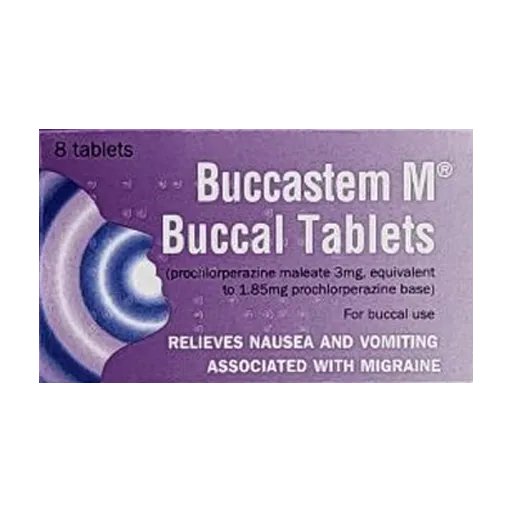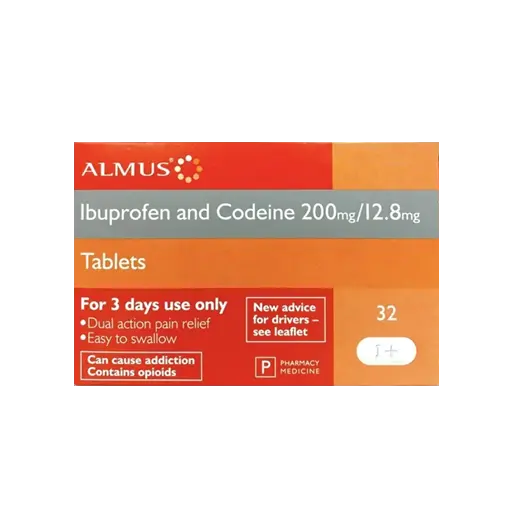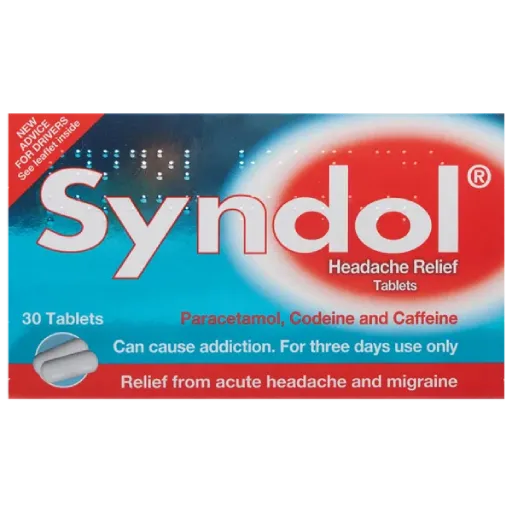What is Sumatriptan?
Sumatriptan is a medication commonly used to treat migraines and cluster headaches. It belongs to a class of drugs called triptans, which work by narrowing blood vessels in the brain and blocking the release of certain natural substances that can trigger headache pain.
How Does Sumatriptan Work?
Sumatriptan works by targeting the mechanisms that lead to migraine and cluster headache pain. It acts on serotonin (5-HT) receptors in the brain, specifically the 5-HT1B and 5-HT1D receptors. These receptors play a key role in controlling the dilation of blood vessels and pain pathways.
During a migraine or cluster headache, blood vessels in the brain become dilated (enlarged), which contributes to the intense throbbing pain. Sumatriptan constricts these blood vessels, bringing them back to their normal size. This helps to reduce the pressure and pain associated with migraines.
Sumatriptan also helps inhibit pain pathways by blocking the release of chemicals that cause migraine symptoms such as nausea, light sensitivity, and throbbing pain.
It’s not a preventative medication, meaning it doesn’t stop migraines from occurring but instead is used to relieve symptoms once a migraine or cluster headache starts.
Dosage
Sumatriptan is taken at the first sign of a migraine or cluster headache. It’s most effective when used early during a migraine attack and usually get to work within 30 minutes. For migraines, if symptoms return, another dose may be taken after a few hours, but it’s important to follow dosing instructions provided by your doctor or pharmacist.
Do not take more than tablet for the same migraine and do not exceed 300mg (three 100mg tablets or six 50mg tablets) in a 24 hour period.
Side Effects
Most people will not experience any side effects when taking Sumatriptan. However as with all medications side effects can occur with the most common side effects being flushing or a tingling feeling, feeling warm or cold, drowsiness, tiredness, weakness, dizziness, upset stomach, diarrhoea, nausea, muscle cramps.
More serious side effects include cardiovascular issues, such as chest pain or heart palpitations, particularly in people with heart conditions. If you experience these side effects, stop taking Sumatriptan and contact a healthcare professional immediately.
Who Shouldn’t Take Sumatriptan?
Sumatriptan is suitable for most people but may not be suitable for individuals with:
- Heart disease or high blood pressure
- History of stroke or TIA (mini-stroke)
- Severe liver or kidney problems
- You have seizures
Always consult your healthcare provider before using sumatriptan to ensure it’s safe for you based on your medical history.
Medications You Can Take with Sumatriptan
Some medications can be taken alongside Sumatriptan to help provide you with symptom relief. Medications you can take alongside Sumatriptan to help with your symptoms include:
- Paracetamol: It is generally safe to take paracetamol tablets with sumatriptan. Both medications work differently, so combining them may help relieve additional symptoms like muscle pain or fever that sometimes accompany migraines.
- NSAIDs (Non-Steroidal Anti-Inflammatory Drugs): Medications like ibuprofen or naproxen are often taken alongside sumatriptan to help reduce inflammation and pain.
- Antiemetics: If nausea is a common symptom during your migraines, taking an anti-nausea medication such as Buccatstem (prochlorperazine) with sumatriptan can be helpful to reduce the feeling that you want to be sick.
Medications to Avoid with Sumatriptan
Some medications should not be taken alongside Sumatriptan as they can interact, these include:
- Other Triptans: Taking more than one triptan (such as zolmitriptan or rizatriptan) at the same time is not recommended, as this increases the risk of side effects like serotonin syndrome—a potentially life-threatening condition caused by too much serotonin in the brain.
- MAO Inhibitors (MAOIs): If you’re taking a monoamine oxidase inhibitor (MAOI), such as phenelzine or tranylcypromine, you should avoid sumatriptan. MAOIs can affect how sumatriptan is broken down in the body, leadin to dangerously high levels of the drug.
- SSRIs/SNRIs: Combining sumatriptan with Selective Serotonin Reuptake Inhibitors (SSRIs), like fluoxetine or sertraline, or Serotonin-Norepinephrine Reuptake Inhibitors (SNRIs), like venlafaxine, increases the risk of serotonin syndrome. While it is possible to use them together under medical supervision, caution is needed.
- Ergotamine-based Medications: Drugs like ergotamine or dihydroergotamine, which are sometimes used to treat migraines, should not be taken within 24 hours of using sumatriptan. Combining them can lead to severe narrowing of blood vessels and dangerous increases in blood pressure.
- St. John’s Wort: This herbal supplement, often used for depression, may increase the risk of serotonin syndrome when taken with sumatriptan.
While blood pressure medications do not directly interact with Sumatriptan you should monitor your blood pressure more carefully when taking them with Sumatriptan.
Why is Sumatriptan restricted?
Due to the various interactions Sumatriptan has with other medication, the possibility of triptan overuse headache, and the contra-indications with other conditions more than 2 tablets cannot be bought over the counter. If you would more than 2 tablets you can fill out a consultation form and our prescriber will determine if a prescription is suitable for you. It is important to note this medication should only be taken after a consultation with a healthcare professional.
Summary
Sumatriptan is a medication commonly used to treat migraines and cluster headaches. It works by narrowing blood vessels in the brain and blocking pain signals, providing relief from the intense pain and associated symptoms like nausea and sensitivity to light. If you would like to try Sumatriptan to treat migraines, consult a healthcare professional to ensure it's the right medication for you, especially if you’re taking other drugs or have underlying health conditions.
Frequently Asked Questions (FAQs)
1. Can you buy sumatriptan over the counter?
Yes, if you have previously been diagnosed with a migraine by a doctor your can purchase 2 tablets from a pharmacy. If you require more than this, you can purchase them from us after filling out a short online constulation.
2. Can you take Paracetamol with Sumatriptan?
Yes, taking the two together can actually help relieve the symptoms of your migraine.
3. Can you take Ibuprofen with Sumatriptan?
Yes, you can take the two together which can actually help relieve the symptoms of your migraine.
4. Does Sumatriptan make you sleepy?
Yes, common side effects include feeling or being sick, feeling sleepy or feeling dizzy. Do not drive or operate heavy machinary unless you know how the mediciation will affect you.
5. How many Sumatriptan can i take in a day?
Do not take more than 300mg of Sumatriptan tablets, 12mg if you are using injections or 40mg when taking it via a nasal spray in one day.
Sources
NHS: Sumatriptan
BNF: Sumatriptan information
MedicinePlus: Sumatriptan
Related products
-
POM
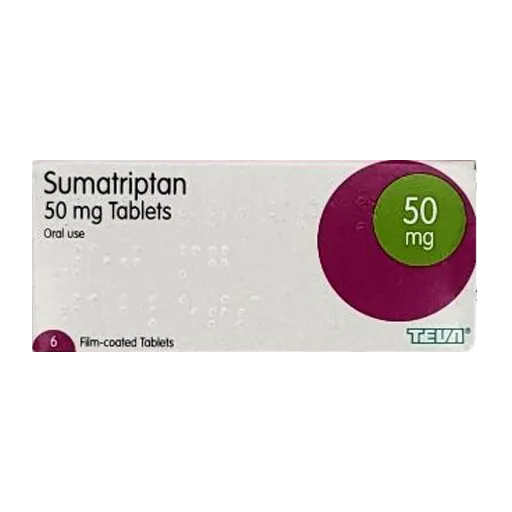
sumatriptan tablets
£11.99
-
POM

rizatriptan tablets
£10.99
-
POM

zolmitriptan tablets
£14.99
-
POM
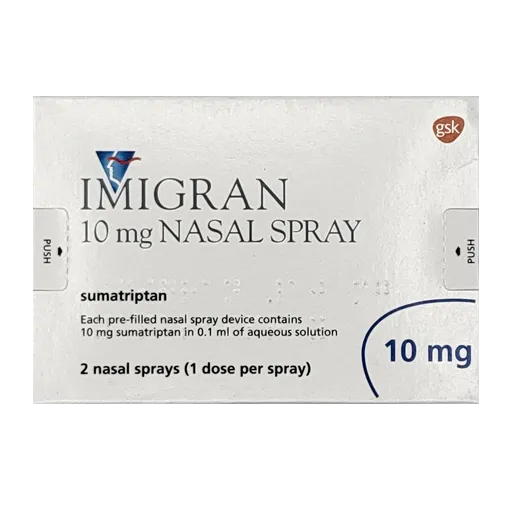
imigran nasal spray
£28.99
-
POM
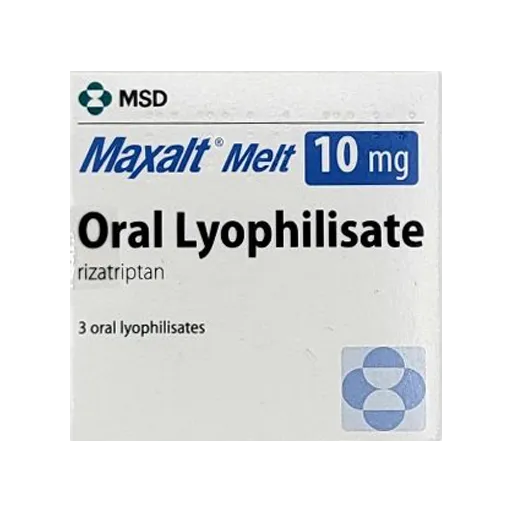
maxalt melt tablets
£26.99
-
P
-
POM

imigran tablets
£44.99
-
P
-
P

nurofen plus tablets
£10.99
-
P
-
P

migraleve pink tablets
£10.99
-
P

migraleve yellow tablets
£9.49
-
P

migraleve complete tablets
£11.99
-
P
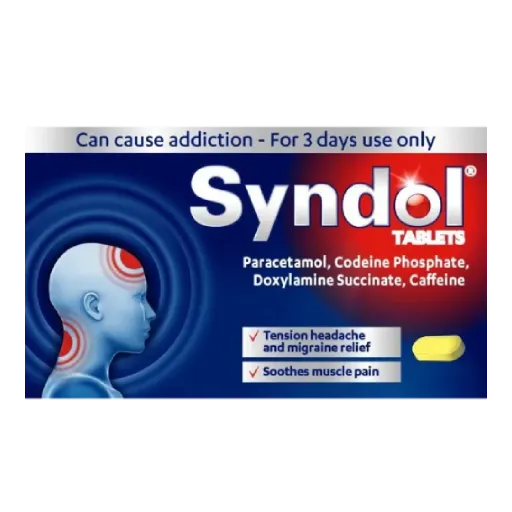
syndol tablets
£5.49
-
P
